
Chearful soundbites we think you’ll enjoy
Popular Topics

Grief & Loss
Coping with loss is never easy, but finding healthy ways to navigate through the pain can help us find comfort and healing. Remember to allow yourself to grieve, establish a routine, seek support, and honour the memory of your loved one. You're not alone in this journey.


Digital Dementia
Take control of your digital habits, promote long-term brain health, and manage digital dementia with these practical tips.

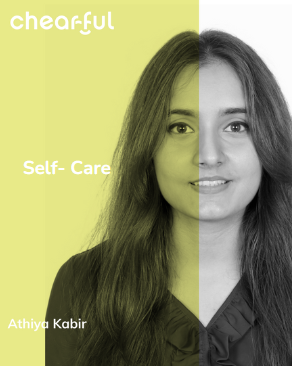
Practical Self Care Tips
Self-care doesn't have to be time-consuming! It's about small, daily practices that boost your well-being.


Job Search Frustration
Job hunting can be tough, but it's important to take care of yourself during the process. Here are a few tips to help you stay resilient and motivated.


Self-Fulfilling Prophecy
Feeling insecure? We all do sometimes. But what if we could rewrite the narrative? This video is about turning self-fulfilling prophecies into self-fulfilling possibilities. Rewrite your story: From self-doubt to self-love You are enough, exactly as you are.


Summer Reminder
Summer reminder: Don't let the highlight reel of social media dim the joy of your own real-life moments. Create memories that matter and focus on what brings you happiness


Men's Health
Men's Health Week isn't just about physical fitness. It's a reminder to prioritize mental well-being and open up about our emotions. Let's support each other in taking care of our whole selves

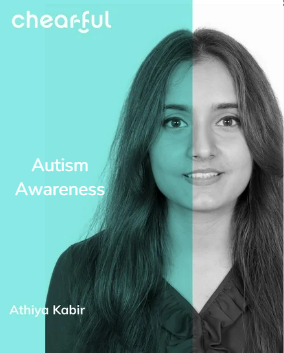
Borderline Personality Disorder
May is BPD Awareness Month. Let's come together to break the stigma and raise awareness about Borderline Personality Disorder. Remember, those with BPD deserve love, support, and access to effective treatment. Let's spread kindness and understanding this month and beyond

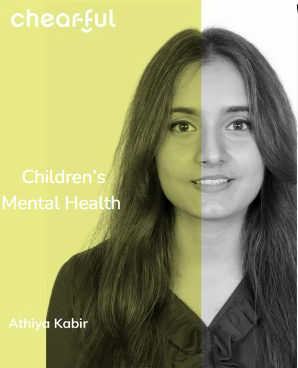
Children's Mental Health
Let's all take care of our minds and emotions! It's Children's Mental Health Awareness Week and moving more is one way to do that. Get active in a way that makes you happy and helps you feel good! #ChildrensMentalHealthWeek #MoveForYourMind

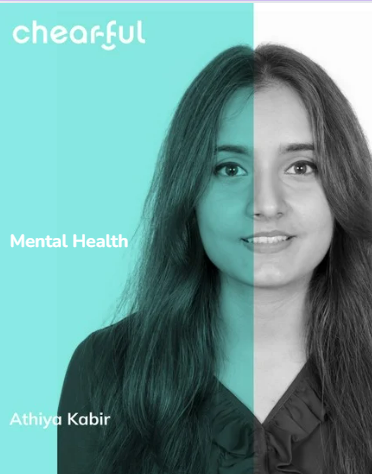
Mental Health Month
Take it one minute at a time. Small choices can lead to big changes in your mental health journey. Happy Mental Health Month


Maternal Mental Health
Happy Mother's Day! Motherhood is a journey of love, challenges, and resilience. Remember, asking for help takes courage, and taking care of yourself is vital for both you and your little one. #MaternalMentalHealth #YouAreNotAlone

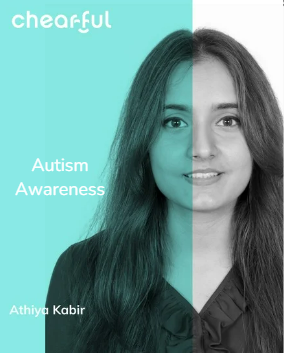
Autism Awareness
World Autism Awareness month is a call to action. It's a time to push for greater inclusion, advocate for better resources and support for autistic individuals and their families, and challenge existing perceptions about autism.By working together, we can create a world where autistic individuals have the opportunity to reach their full potential and live fulfilling lives. Let's celebrate the diversity and strengths that the autistic community brings to our world.

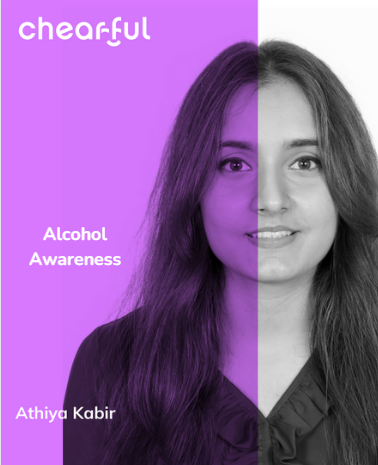
Alcohol Awareness
Alcohol might feel like a quick fix, but it can worsen what you're trying to escape. Let's talk about healthier ways to manage stress, celebrate, and connect. What are your favourite alcohol-free ways to unwind?


International Laughter Day
Laugh freely, love deeply, and live fully! Today and every International Laughter Day, let's prioritize joy and happiness. Whether it's sharing a joke with loved ones, enjoying a comedy, or simply relishing in the silly moments, let laughter enrich our lives and enhance our well-being. What made you smile and laugh today?

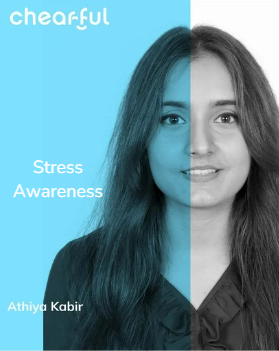
Stress Awareness Month
Stress has become an unavoidable part of modern life, impacting our mental and physical well-being. Stress can be brought on by different situations or overwhelming demands, which can really take a toll on us. It's normal to feel stressed out occasionally, but it's important to deal with it effectively. Here are ways to manage your daily stress in just 5 minutes.

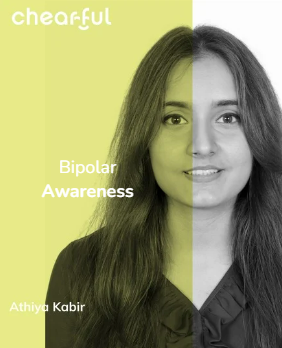
Bipolar Awareness
Let's shatter the myths surrounding bipolar disorder and pave the way for understanding and support! 💪From debunking misconceptions about mood swings to dispelling the notion of violence, and highlighting the ability to lead successful lives and hold jobs, it's time to embrace the reality of bipolar disorder.

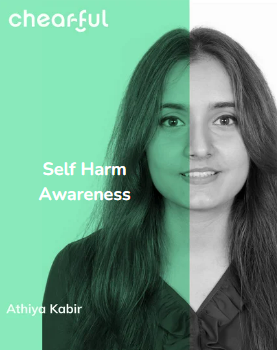
Self Harm Awareness Day
Self-Harm Awareness Day is an annual international event observed in March. Self-harm, also known as non-suicidal self-injury, is a behavior where individuals intentionally harm themselves. Many people resort to self-harm as a coping mechanism for difficult emotions and situations, rather than as an attempt to end their lives. If you are feeling overwhelmed by negative thoughts and feelings, please know that you are not alone, and there are ways to cope with these emotions and situations.


Sleep Awareness Week
Happy Sleep Awareness Week! Good sleep is essential for your brain to regulate emotions, process information, stay focused, and be ready for the next day. For the next 7 days, try the 1-2-3 bedtime routine: avoid caffeine, exercise regularly, avoid large meals before bed, engage in calming activities, put away your devices an hour before bed, and reflect on the best thing during the day. Sleep well and wake up feeling energized.


International Women's Day
Happy International Women's Day! Let's raise awareness about issues affecting women, including mental health, and advocate for better support systems. This day reminds us to commit to creating a world where all women can thrive.

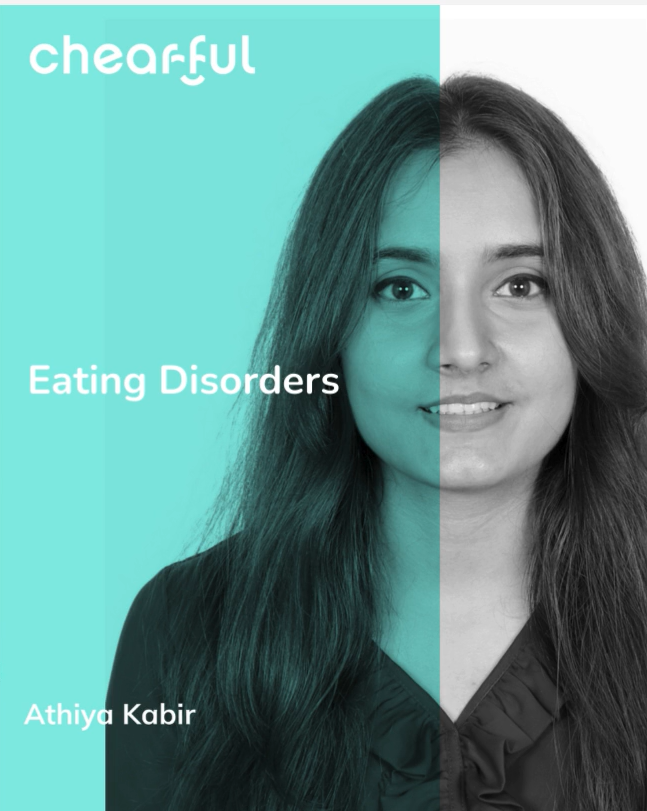
Eating Disorders Awareness Week
Eating disorders are complex mental health conditions characterized by unhealthy attitudes and behaviours toward food, weight, and body image. They can affect anyone and are caused by a combination of factors. Awareness is crucial in combating stigma and promoting early intervention and treatment.


Random Acts of Kindness Week 2024
It's Random Acts of Kindness Week. Kindness is the unique thing in the world that doubles when you share it. It's a scientifically proven fact that performing a single random act of kindness daily reduces stress, anxiety, and depression. Moreover, it increases hormones that make you and the person you've helped feel calmer, healthier, and happier.


Safer Internet Day
The internet has revolutionized our world. While it offers incredible opportunities for connections, learning and creativity, it can impact our mental well-being. This safer internet day, let us inspire change by embracing safe, responsible and positive digital habits. Here are some tips and strategies to help you build a safe digital space.

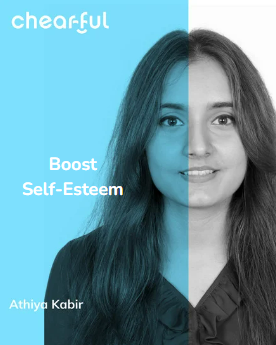
International "Boost your Self-esteem" Month
Happy February! It's the month of love, but did you know that February is designated as an international "boost your self-esteem" month? Self-esteem is how we value and see ourselves. If it's low, it can sometimes impact the way we treat ourselves or make it harder to recognize our strengths. But don’t worry, I have some tips to boost your self-esteem:


Emotional Decision Making
It's okay to feel overwhelmed sometimes and lose control over our emotions. If you have ever snapped at someone over something trivial, let's understand why that happens and find a way to help you regain your emotional balance.


Procrastination
Struggling to get started? It's not you! Discover the science behind procrastination and break free.


No Name Calling Week
No Name-Calling Week is observed during the third week of January to educate students, teachers, and the public on the harms of name-calling.


Action Leads to Motivation
The difference between who you are and who you want to be is what you do. Let's bridge that gap together! Here are 4 tips to build momentum & achieve your goals.


Therapy Misconceptions
Dismantling Myths: Exploring the Realities of Therapy. In this video, we tackle common misconceptions surrounding mental health treatment, offering clarity and insight into the transformative journey of therapy. Let's challenge assumptions and embrace a more informed perspective!


Why is therapy important
Is your body sending you messages? Listen to what it's telling you about your mental health.


Anxious about the New Year
New year, new feels! Change can be a mix of excitement and anxiety. Let's begin the new year with resilience and the belief that we've got this!


Dealing with the disappointment of unachieved goals
Reflect, Reframe & Rejoice: Life's unexpected turns may lead to new skills, mindsets, and connections. Acknowledge victories, express gratitude, and embrace change.


Setting Positive Intentions for the New Year
As the new year approaches, reflect on your journey, learn from setbacks, align your goals with your core values and set positive intentions.


Balance Ambition and Wellbeing
Setting ambitious goals is exciting, but let's not forget to prioritize our well-being along the way. Follow this simple framework by a Psychologist to guide your choices that resonate with your true well-being, one thoughtful decision at a time.


Holiday Stress
Sometimes, stress is inevitable, but how we perceive it can make all the difference. Instead of trying to control the uncontrollable, consider reframing stress as an opportunity for gratitude and self-reflection. This holiday season, prioritize what truly matters and let the joy in.


Alone during the holidays
Reminder: spending the festive season alone doesn't mean missing out. It's an opportunity to redefine traditions, prioritize self-care, and enjoy new experiences. Remember to be kind to yourself whether you're healing, exploring, or simply taking a break. Happy Holidays!


Mindful Goal Setting
تحديد الأهداف الواعية: تحقيق أهدافك بنية وهدف.إن تحديد الأهداف الواعية هو عملية دراسة أهدافك بعناية وتحديدها وفقًا لقيمك وتطلعاتك. يتعلق الأمر بتخصيص الوقت للتفكير فيما تريد تحقيقه حقًا في الحياة ثم تحديد أهداف واقعية وقابلة للتحقيق من شأنها أن تساعدك على الوصول إلى هناك.


Embracing Change and Uncertainty in the New Year
مع انتهاء العام، من الطبيعي التفكير في الماضي والتطلع إلى المستقبل بمزيج من الترقب وعدم اليقين. وهذا يمكن أن يؤدي إلى الخوف والقلق. التغيير جزء لا مفر منه من الحياة، ويمكن أن يجلب التحديات والفرص.في حين أنه من السهل أن تشعر بالإرهاق من المجهول، إلا أن تقبل التغيير وعدم اليقين يمكن أن يؤدي إلى نمو شخصي وفرص جديدة وحياة أكثر إشباعًا.فيما يلي بعض النصائح لتقبل التغيير وعدم اليقين في العام الجديد.


Strategies for Healthy Boundaries During Family Gatherings
التجمع العائلي: استراتيجيات لوضع الحدود الصحية.يمكن أن تكون التجمعات العائلية مصدرًا للفرح والتواصل والذكريات العزيزة. ومع ذلك، يمكن أن تكون أيضًا أرضًا خصبة للتوتر والصراع والمواقف غير المريحة. يعد إنشاء حدود صحية والحفاظ عليها أمرًا بالغ الأهمية لحماية صحتك والحفاظ على علاقات جيدة مع أحبائك. في هذا الفيديو، نستكشف الاستراتيجيات للتعامل مع التجمعات العائلية بثقة ورشاقة.


Coping with Loneliness During Year-End Celebrations
في هذا الفيديو، نتحدث عن كيفية التعامل مع الوحدة خلال الأعياد في نهاية العام. دعونا نكشف عن استراتيجيات تعزيز الرفاهية النفسية وتجاوز التحديات لخلق تجربة أعياد تكون مليئة بالاسترخاء والتواصل.

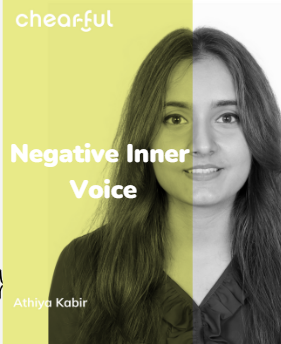
Negative Inner Voice
Ever find that negative voice in your head a bit too loud? Check out this video for easy tips on turning down the negativity

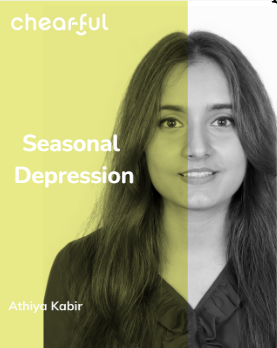
If you are always sad in winter watch this
Seasonal depression is more than just being sad that summer is over. Watch this video to learn what it is, its symptoms, and ways to prevent and treat it.


Therapists advice to their patients to overcome the global economic Stress
From job uncertainties to financial pressures, we explore the factors that contribute to the strain on wallets and well-being. Discover practical tips and strategies for economic challenges and build financial resilience.


للمغتربين..كيف تتعامل مع الحنين للوطن والأهل خاصة في موسم الإحتفالات والأعياد
في بعض الأحيان تأخذنا الحياة إلى أماكن بعيدة عن منزلنا وأحبائنا. يمكن أن يؤدي ذلك إلى الحزن والارتباك والعزلة والوحدة... تعلم بعض الاستراتيجيات التي تساعدك على التأقلم وعيش حياة أكثر سعادة في بيئتك الجديدة.


Psychologist vs Psychiatrist
Hi and welcome to chearful.com!When it comes to mental health, understanding whom to approach can make a big difference. Today, let's explore the unique benefits of psychologists and psychiatrists. Both psychologists and psychiatrists play crucial roles, but their approaches and benefits differ.Starting with psychologists - these professionals are masters in understanding the human mind. With advanced degrees in psychology, they are trained to unravel the complexities of emotions and thoughts through talk therapy. One of the greatest benefits of seeing a psychologist is their focus on talk therapy. This approach allows for deep exploration of personal issues, helping you develop coping strategies and insights without medication. Psychologists are also incredibly versatile, offering specialized support for a wide range of issues – from anxiety and depression to relationship problems and life transitions.On the other hand, psychiatrists, being medical doctors, can prescribe medication. This is essential for conditions that are more biologically based or severe. They are skilled in managing mental health disorders where chemical imbalances play a significant role, offering a blend of medication and therapy. The choice between a psychologist and a psychiatrist may depend on your specific needs. If you're seeking deep, insightful exploration of your mental and emotional world, a psychologist is your go-to professional. Remember, seeking help is a sign of strength. Whether you choose a psychologist's therapeutic approach or a psychiatrist's medical expertise, you're taking a brave step towards better mental health.Your mental wellness journey is unique, and there's always a Chearful professional ready to guide you along the way.


Homesickness advice if you are spending holidays alone
Ever missed home so much it feels like a heartache? From missing family and familiar places to the comfort of routine. Discover how to deal with homesickness


هل المسؤليات والأولويات سبب في فشل علاقتك؟
قد يؤدي تغيير الأولويات إلى إهمال شريك حياتك والتركيز على مسائل أخرى كالعمل والدراسة. نقدم لك اليوم بعض النصائح التي تساعدك على الالتزام بمسؤولياتك دون التقصير في حق شريكك.


Friendship Recession
Ever felt like your friendships hit a rough patch? From busy schedules to changing priorities, it is harder than ever to find friends or keep a friendship alive this is called friendship recession.


شريك الحياة
هل تجد نفسك تحلم بشريك المستقبل؟ يقول البعض أن هذا يمكن أن يكون ضارًا. اكتشف كيفية استخدام هذا الخيال لمساعدة نفسك، ومتى يمكن أن يصبح ضارًا.


The Partner of Your Dreams
Do you find yourself dreaming of a future partner? Some say this can be harmful to us. Discover how to use this imagination to help yourself, and when it can become harmful.


Managing work stress
هل تشعر أن عملك هو سبب تعاستك؟ تعلم بعض الطرق لبناء علاقة صحية مع عملك


Burnout
Are you feeling exhausted and overwhelmed by the constant demands of work and life? Don't let it take a toll on your mental and physical health. Take charge of your well-being by learning more about the causes of burnout. This video is a must-watch if you want to preventive measures and live a happier, healthier life.


Anxiety from Economics and Politics
إن الجمع بين السياسة والاقتصاد قد يكون أرضاً خصبة للقلق في عالم يتسم بالتغير الدائم وعدم اليقين. يمكن أن يتركنا نشعر بالعزلة والوحدة والرعب والإرهاق. فيما يلي بعض المؤشرات لمساعدتك على التنقل في هذه المياه المضطربة.


Managing Peer Pressure
Athiya Kabir shares her professional insights on how you can deal with peer pressure and make sure your choices are yours.


The Pressures of Starting a New Relationship
كم مرة تلقيت سؤال: 'هل ما زلت عازبًا؟' أو 'هل قابلت شخصًا جديدًا؟' وجعلوك تشعر وكأن قيمتك تعتمد على حالتك العاطفية؟ إليك بعض النصائح لمساعدتك على عدم الانجراف تحت هذا الضغط الاجتماعي والاستمتاع بوقتك كشخص عازب.

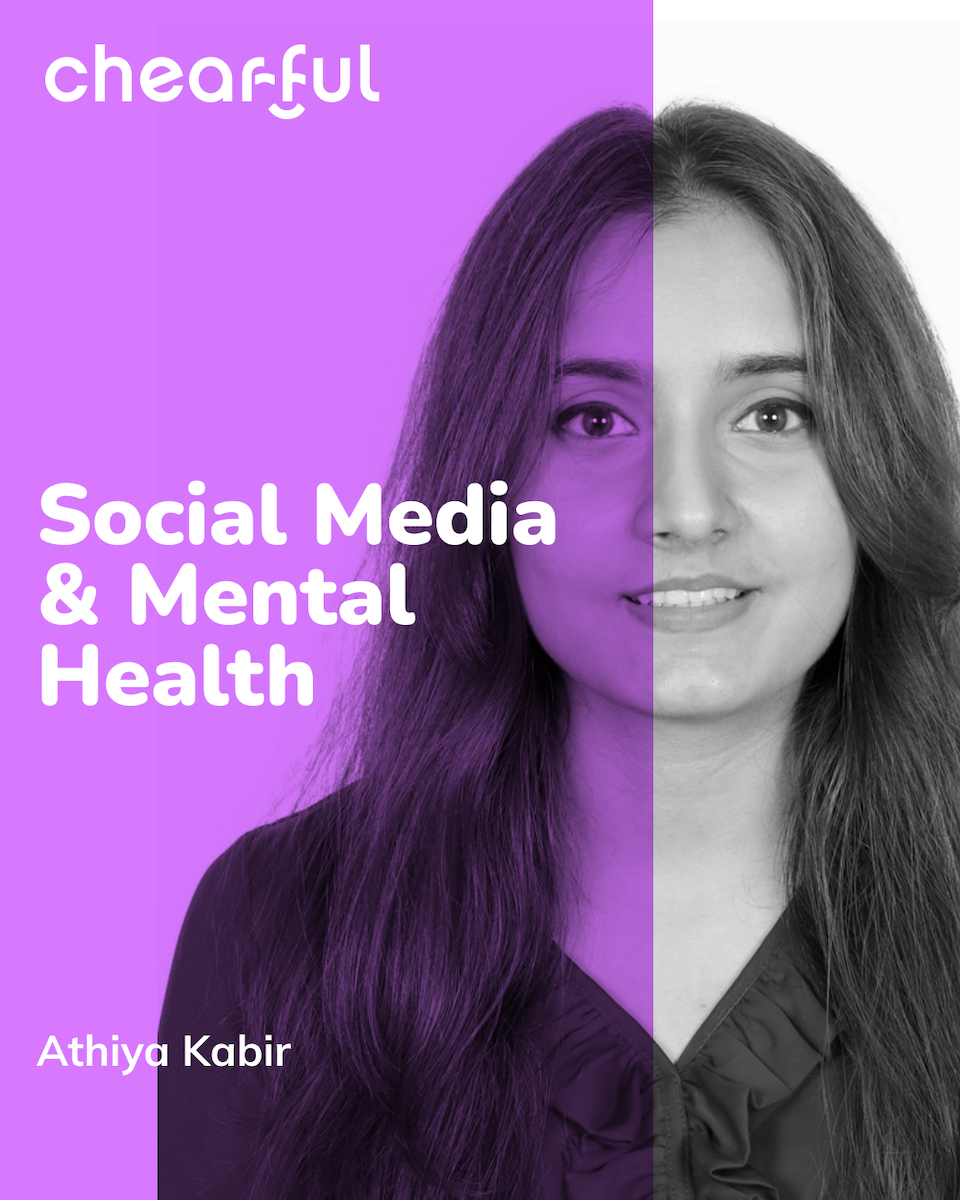
Social Media and Your Mental Health
Athiya Kabir talks about how to manage social media in a healthy way so it doesn't impact your mental health and wellbeing. Being mindful of our use is important, as is setting time limits on daily use. Evaluate the type of accounts that you commonly view or follow, and weed out the ones that you think may be harmful to your wellbeing. Watch the Chearful soundbite to hear more

Imposter Syndrome - what it is, and how to manage it
Do you ever feel like you’re a fake, but you know it isn’t true? This is called Imposter Syndrome. And it refers to a psychological phenomenon where a person doubts their accomplishments and is afraid of being exposed as a fraud, despite their competence and achievements. People with imposter syndrome often believe that they are not as capable as others perceive them to be, and they think their successes come from luck or external factors. Imposter syndrome can show up in different ways, such as, feeling inadequate, constantly comparing oneself to others, fearing failure, and having difficulty accepting positive feedback. The causes of imposter syndrome are complex and can include factors such as, perfectionism, high expectations, early experiences of criticism or failure, and societal pressures. And, sometimes certain work cultures that emphasize competition and comparison can contribute. Here are some ways you can manage these thoughts and feelings: Remind yourself of your successes and the hard work, skills and learning that went into them. Pay attention to your inner dialogue and challenge negative thoughts about yourself, and instead focus on your strengths, and use positive affirmations. Talk to trusted friends, family members, or mentors who can provide encouragement and perspective. Understand that perfection is not always attainable, and it's okay to make mistakes or encounter setbacks. Set realistic goals for yourself and celebrate progress along the way. Recognize that learning and growth are ongoing processes. Remember, imposter syndrome is a common experience, and many successful individuals have struggled with it at some point. With self-awareness and self-compassion you can gradually overcome imposter syndrome and become more confident. Thank you for watching, and see you next time.

.jpg)
Work life Balance
Hello, Sandra here from Go you that is get out of your own ways. And this series is looking at practical ways to improve your work life balance. Now, I know the phrase work life balance can seem almost elusive, unobtainable, impossible to reach in today's hectic, busy norm and most people's reality involves a long list of personal and professional “To Dos”. And although there is a lot of these “To Dos” are very real, the need for balance is also real and really important. So being out of your work life balance for a short period of time, yes, that's manageable. However, remaining on that pathway for a longer time frame can have dire, terrible consequences for your physical and mental well-being. It's important to take some time to reflect on your own work life balance and decide if you need to take some action. So, starting today, here are some practical ideas that you can incorporate into your life to gain a healthier and more sustainable long-lasting work-life balance. Me time and reflection, giving 30 minutes to yourself a day can help you reset and feel grounded. It will recharge you for going back out into the world. It's your me time. So, stick to what makes you the happiest. It's also an opportunity for you to connect with your inner self. Reflect on what is going well and what you might need to address and change. Don't ignore looming problems, tackle them early. Number two, be social. We are social beings, and we all need friends and family. So, make time for family and friends just as you would do for work, maintaining a healthy balance between personal and professional life is key. Do things with family that brings you closer to each other, have meaningful conversations and have lots of fun. It could be something as simple as having dinner together or going out for a walk. And number three, learn to prioritize when it comes to work life balance. There are no set rules. The goal is to set your priorities according to your needs and your situation and allocating enough time to each of the important activities. However, accept that there is no perfect balance. Knowing your priorities will keep you away from any unnecessary and unimportant tasks. That's it for today. See you in the next series. You can view my profile and my areas of specialization here

Learning to Forgive
Forgiving betrayal can be difficult and painful, but it is possible with time and effort. Here are some steps you can take, to begin the process: Acknowledge your feelings: Betrayal can be a deeply hurtful experience, and it's important to allow yourself to feel the range of emotions that come with it, such as: anger, sadness, and disappointment. Don't try to suppress or deny your feelings, but rather identify, and allow yourself to understand them. Practice empathy: Try to put yourself in the other person's shoes and understand why they may have acted in the way they did. This doesn't mean that you excuse their behavior, but it can help you to see things from their perspective. Communicate your needs: If you feel ready to confront the person who betrayed you, it can be helpful to talk about your needs and boundaries clearly. Let them know how their actions affected you and what you need from them to move forward. Let go of grudges: Holding onto anger and resentment can become toxic and hurtful. Instead, try to focus on your own healing and growth. Practice self-care: It's important to prioritize your own well-being during this time. Practice self-care activities that help you to feel grounded and centered, such as exercise, meditation, or spending time with loved ones. Remember that forgiveness is a personal process, and there is no right or wrong way to go about it. Give yourself time and space to heal, and don't be afraid to seek support from friends, family, or a therapist . The Chearful team thanks you for watching, we are here to help and support you.

Your Family and Phone Addiction
Cell Phone addiction can have negative consequences on a person’s physical and mental health, as well as their social relationships and overall well-being. Managing your family's phone addiction may be challenging, but here are some strategies that can help: Establish clear rules and guidelines around phone use for everyone in the family. For example, you may decide to have a "no phones during meals" rule or limit phone use after a certain time at night. Be sure to communicate these rules clearly and consistently enforce them. Encourage family members to engage in other activities that they enjoy, such as playing games, reading, or spending time outdoors. This can help reduce the need for constant phone use and provide other sources of pleasure and fulfillment. Be a good role model for your family by modeling healthy phone use habits yourself. Limit your own phone use and prioritize spending quality time with your family. Make a conscious effort to spend quality time together as a family doing activities that everyone enjoys. This can help strengthen your family bonds and reduce the need for constant phone use. There are many apps available that can help limit phone use, such as apps that block certain websites or apps during specific times of day or limit overall screen time. Encourage open and honest communication with your family about their phone use. Let them know how their phone use is affecting the family dynamic, and encourage them to be open to making changes. Remember, managing phone addiction in the family takes time and effort, but with patience, communication, and support, it is possible to make positive changes. It is a team effort.

Managing Your Anger with Healthy Practices
Managing anger can be a challenging task, but with practice and the right tools, it can become easier over time. Here are some strategies that can help Identify triggers: Keeping a journal or taking note of what situations or people make you angry can help you identify patterns and come up with strategies to manage those triggers. Practice relaxation techniques: Techniques like deep breathing, meditation, or yoga can help you calm down when you feel angry. Make a habit of practicing these techniques regularly, so they become a natural response to anger. Communicate effectively: Learning how to express your anger in a constructive way is important. Try to use "I" statements instead of "you" statements, avoid blaming or attacking language, and stick to the topic at hand. Take a break: Sometimes, it's best to step away from a situation that's making you angry. Take a few minutes to calm down and collect your thoughts before returning to the situation. And of course, Get support: If you're struggling to manage your anger, consider seeking help from a therapist or support group. They can help you develop coping skills and offer guidance. Most importantly, don't forget to be patient with yourself as you navigate through your emotions. Thank you for watching, and the Chearful team wishes you well!

Managing Your Teenager's Emotions
Managing your teen's emotions can be challenging, and here are some simple tips to help them navigate their way way through to healthy wellbeing.

What is empathy - 3 tips to cultivate it
Hi, I'm Priya Cima and I'd like to talk to you about empathy. What is empathy? Empathy is literally showing understanding and compassion to other people. It's about knowing and understanding what they feel and how they feel. And empathy can be learned, and it needs to be practiced. So how do we practice empathy? Three very simple ways that we can practice empathy. One, be curious, ask questions, ask people how they feel. There is no awkward moment when all you're doing is showing that you care. Two, join a larger cause, something that's bigger than yourself, and something that has meaning for you so you can learn about different things, and different people, different cultures, different ways of living and feeling. And three finally, listen. Listen carefully to the underlying emotions, feelings, thoughts that come behind words that people use, give them time to speak, respond and don't react.

Post-traumatic Growth
Hi, I'm Dr. Chris Willard. I'm a clinical psychologist, faculty at Harvard Medical School and an author of a number of different books. The one I'm most excited about, and the concept I'm most excited about comes out of positive psychology. And it's this idea of post traumatic growth. What we actually know? Well, we certainly know that many of us have been through incredibly trying challenging experiences in these past few years during the pandemic. And even before and after the pandemic, so many other traumas of life, big and small, whatever even that means have been experienced by us and the people that we love and other people around the world. What's amazing now is that actually, more people go on to experience post traumatic growth, in addition to post traumatic stress in their lives after going through difficult times. I'm really excited. I'm doing a series of workshops on this topic, have a new book coming out on this topic, how we grow through what we go through which I think we've all been through some hard times, and thinking about what are the practices that we know from spirituality? What are the practices that we know from anthropology, even from history, as well as from neuroscience and contemporary psychology, and positive psychology that can teach us how we can thrive not just survive in this space of life's challenges? So I hope that you'll research this topic, learn a little bit more about it. I know through Chearful there'll be a lot of resources on this topic of post traumatic growth, as well as topics like self compassion, as well as topics like positive psychology as well as topics like mindfulness and others that are near and dear to my heart. And I hope that you'll check them out and I look forward to getting to know you better.

What does good mental health mean
Hi everyone. I'm Priya Cima. Welcome to cheerful.com. I'm here to talk to you a little bit about mental health and the terminology or the phrase good mental health. In today's world, international health organizations across the globe have decided and have acknowledged the fact that people's mental health and well-being is so important, especially as we have stress and anxiety on the rise. It's important for us to understand what good mental health actually means. The term good mental health refers to the emotional, psychological, and social well-being of an individual, and how they actually manage the stresses in their life. So good mental health is really about the behavior that translates from the emotions and thoughts that they feel. So, what does that mean? Good mental health is about acknowledging and accepting the fact that a person person can feel fear, loss, pain, any of the negative emotions, so called negative emotions, as well as the positive emotions like happiness, joy, and peace. So, it's about really allowing a person to go through the spectrum of emotions, acknowledging them, accepting them, and then learning how to manage the behaviors that come out of them in an effective and healthy manner. And that is good mental health. Thank you.

Mindfulness Meditation for Stress & Anxiety
This is a quick mindfulness meditation, which will help to relax your body and your mind. reduce anxiety, release tension, and refocus your attention. Close your eyes and smile. We're going to set the intention. This is a moment for me. As you breathe in, visualize a bright golden light entering through the crown of your head and filling your entire body. As you breathe out, this golden light leaves your body through your fingertips and takes with it all of the tension, making you feel more and more relaxed. As the golden light enters through the crown of your head, visualize and relax the crown of your head and your scalp. Visualize and relax your face and your head. Visualize and relax your neck and your throat. Visualize and relax your shoulders, your upper arms and your lower arm. Visualize and relax your hands, your fingers and your fingertips where that golden light is leaving your body and taking with it the stress, the anxiety, the tension to leave you feeling a deep state of relaxation. Stay here for a few more deep and cleansing breath and finally, slowly and mindfully open your eyes. Namaste and have a beautiful day!

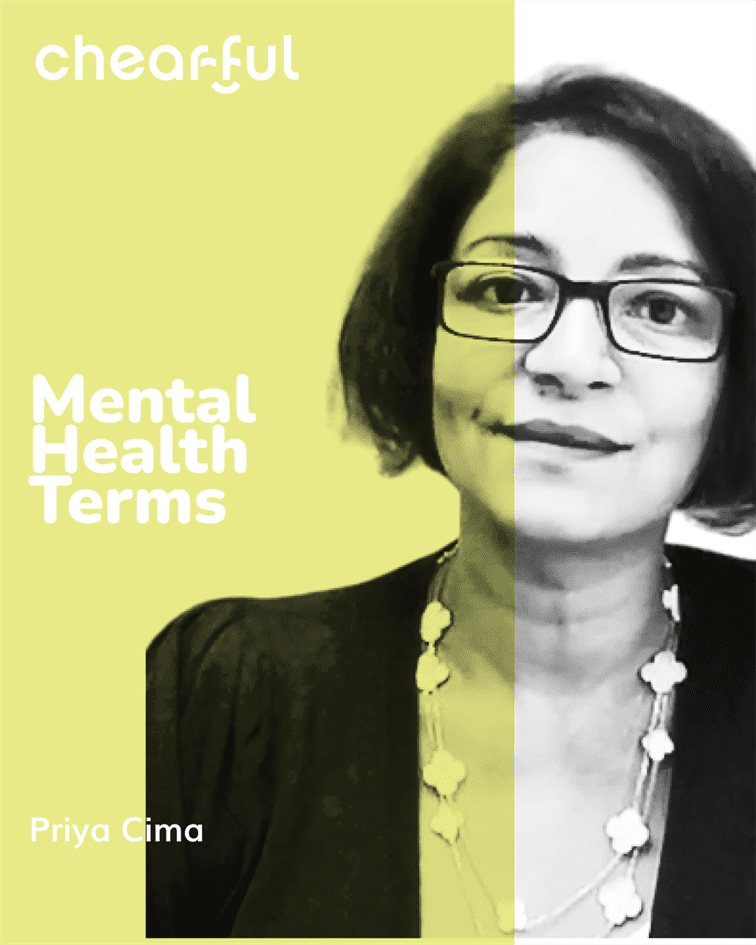
The language of mental health matters
Hi everyone, and welcome to cheerful.com. Today I'd like to talk to you about the language of mental health or mental well-being. It's so important that we use the right words and terminology, it's so important that we as a community understand what mental health actually means. mental distress is really about the different stresses that occur, the daily stresses, things like presentations that you have to give or exams, or any, any sort of performance stress that a person might have. So, these are the kinds of stresses that a person goes through on a daily basis, and then they overcome it because of their own inner strength and being able to manage it effectively. Now, a mental problem or mental health problem is one step above that. And that's when a person actually goes through some sort of a dramatic life change or change in circumstances in their lives. It's when maybe someone goes through a sense of loss of a loved one or a friend. And this is a little bit more prolonged, where an individual will have a prolonged period of stress and anxiety, and this could affect, and does in fact, affect their physical well-being as well as their emotional and social, psychological well-being. And then we have the third level, which is a bit more serious and requires a diagnosis. And this is the mental health illnesses. These are the mental health disorders, things like schizophrenia and bipolar disorder, or depression or chronic anxiety. And this requires a lot more support from practitioners, mental health practitioners, as well as from family and friends. So, there are distinct layers to mental health and mental well-being. And it's important that we recognize that, so we don't misunderstand, and we don't misuse the terminology. So, somebody who is active and energetic does not have ADHD, necessarily. Someone who is, you know, focused on cleanliness and hygiene does not have obsessive compulsive disorder, necessarily. So, it's really important that we as individuals recognize this. Thank you and have a nice day.

Three things to manage anxiety
Hello, my name is Dr. Sumner and I'm here to talk to you about three things you can do to manage anxiety. The first thing to do is simply notice, notice those moments when you are feeling anxious. Conscious awareness is helpful to identify in particular, triggers. So we understand what it is that's making us feel anxious. And journaling is a great way to do that. The second thing is to use simple relaxation techniques, such as breathing exercises, I'm mindful activities. Thirdly, it's really important that if you're feeling overwhelmed by anxious thoughts and feelings, if you feel like your anxiety is increasing in frequency, then please reach out to a mental health professional who can provide you further details, support and advice.

Articles
Build your awareness and get inspired with our researched articles on how you can strengthen your well-being

Stress Management Techniques
 3185
Reads
3185
Reads



